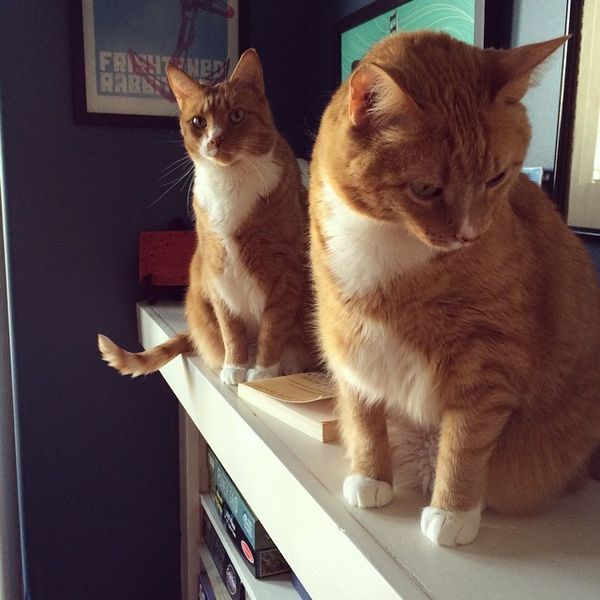Last year, this GuestKat reported on an interesting case involving F1 Driver Max Verstappen. Several months after claiming his first World Championship, Verstappen now can add another victory to his trophies, as the Dutch Supreme Court rendered a principle judgment in his favor.
Background
What was the case about? In 2016, Verstappen was featured in a TV commercial for Dutch supermarket chain Jumbo. In the commercial, Verstappen delivers groceries in his F1 racing car, attesting to the swiftness of Jumbo’s delivery service. Shortly thereafter, Picnic, a competitor of Jumbo, also launched a commercial. In this commercial, a (very accurate) look-a-like of Verstappen, wearing the identical racing outfit Verstappen wore in the Jumbo commercial, delivers groceries in Picnic branded lorry, as depicted below.
 |
| The real or 'fake' Verstappen? |
Unhappy with the parody, Verstappen successfully claimed infringement of his image rights at first instance (before the district Court of Amsterdam). The Court of Appeal of Amsterdam ruled differently and held that, under Dutch law, image rights only grant protection against the actual use of one’s own image. Given that the commercial of Picnic merely depicted a look-a-like of Verstappen, the image of Verstappen itself was not used and thus could not have been infringed. Verstappen brought the case before the Dutch Supreme Court, where the Advocate General advised that a look-a-like could constitute an image, if the imitated person could be sufficiently recognized.
The decision by the Dutch Supreme Court
In its decision, the Dutch Supreme Court concurs with the Advocate General. It rules that under certain circumstances, a look-a-like can constitute an image. However, mere recognizability of the imitated person is not sufficient. Instead, it must be established that the possibility of recognition was (purposefully) enhanced, through either the specific presentation of the look-a-like (e.g. the clothing and make-up), the overall depiction or the context in which the image is being published. By imposing these additional requirements, the court seeks to prevent that an incidental resemblance will automatically constitute a use of an image.
The Dutch Supreme Court furthermore found that it is not relevant if the audience is aware that a look-a-like is being used and not an image of the imitated person itself. The nature of the image, such as it being a parody, is equally irrelevant in deciding whether there is an image. Yet, it can be significant in determining if the portrayed person has a legitimate interest to object to the use of its image.
Comment
Although the Dutch Supreme Court extended the protection of image rights beyond their original scope, the decision allows image right law to be more flexible and adaptable to modern times and advertising trends.Despite being in pole position, the legal race is not over yet for Verstappen. The Supreme Court will now refer the case back to the Dutch Court of Appeal, who still must decide if the F1 driver has sufficient legitimate interest to object to the look-a-like. In that regard, it feels like a missed chance that the Dutch Supreme Court did not give additional guidance on circumstances that could weigh in favor of the portrayed person (such as a clear commercial motive of the parody or attempts to cause willful reputational damage) or that would prevent him from successfully objecting to the use of its image (e.g. to express a political opinion, mere satire or as part of piece of art).
Top image by Lilliealbert, made available under a Creative Commons Attribution-Share Alike 4.0 International license.





![[GuestPost] G1/24: Tuning in! A take on the state of proceedings before oral proceedings](https://blogger.googleusercontent.com/img/b/R29vZ2xl/AVvXsEjZhEivE5bp7QOwZsyZXAXbVNYSmLjUthkB2Q7fm1_dpB97u5lIQeyWT9ZadUTAH3Z-hXn13VpW4vBDRPx9emCnoDV6tbUTkyvfmqPv1nNInL8XMdrAtSZ2hcRQr2LjxKovC9wTk_XyZxQ0CtX1MUrO_Muz3OJ4ld8AftymsdUmKD7xNksYMwk6/s150/Picture%201.png)
![[Guest post] ‘Ghiblification’ and the Moral Wrongs of U.S. Copyright Law](https://blogger.googleusercontent.com/img/b/R29vZ2xl/AVvXsEhxl1BQBAW3Y-asjb1xXB9eA4DYy77fky6WgR-prC-_6DeBbDqOgCUDWyiz0Q3B23MWWAXnkbS2H2js7OUwA0JQXAHmsyVFgGIHeJz7zJ791vTzOD-4SJqWFIuywFXQyd3ahybbdZd4e8IEVfcNqctvyR8lumv_Gix6Tsw5cSvbHpTI1nwvztDuAQ/s150/IMG_2179.HEIC)


![[Guest book review] The Handbook of Fashion Law (with a discount code)](https://blogger.googleusercontent.com/img/b/R29vZ2xl/AVvXsEgB4h2AdqJKwq9O3Ft4Mb7C39tv_NeFpkzrOfvhIsuwAkM_ops2Hgj7fdwzq_TQsjQDvQrQa-yyC9Q9pNiugseXRlUaMdsr_cmYUbh9lH8HDECMCbsTuNboVgpafyEhkgDkVS6ruHkuz8Sx0QVGI_1S8R9kbsHdNIYrRjqhyphenhyphen010_txjJUYvlZOtWA/s150/Fashion%20Law%20Book%20Bicture.jpg)







No comments:
All comments must be moderated by a member of the IPKat team before they appear on the blog. Comments will not be allowed if the contravene the IPKat policy that readers' comments should not be obscene or defamatory; they should not consist of ad hominem attacks on members of the blog team or other comment-posters and they should make a constructive contribution to the discussion of the post on which they purport to comment.
It is also the IPKat policy that comments should not be made completely anonymously, and users should use a consistent name or pseudonym (which should not itself be defamatory or obscene, or that of another real person), either in the "identity" field, or at the beginning of the comment. Current practice is to, however, allow a limited number of comments that contravene this policy, provided that the comment has a high degree of relevance and the comment chain does not become too difficult to follow.
Learn more here: http://ipkitten.blogspot.com/p/want-to-complain.html